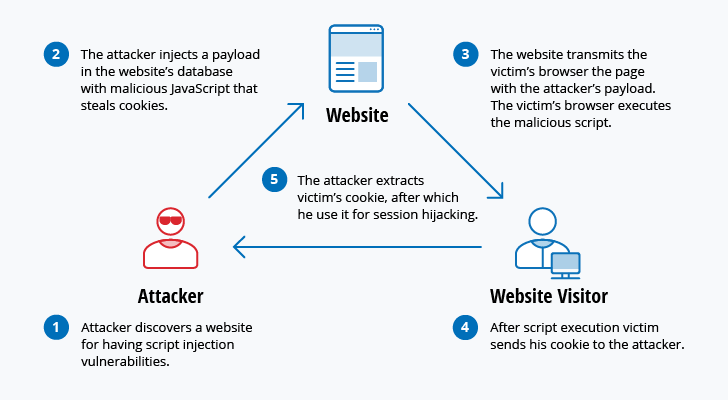- Home
- List of Top Financial Certifications That Boost Your Career Potential in 2020

List of Top Financial Certifications That Boost Your Career Potential in 2020
If you want to work as a financial analyst, you need to earn at least two commercial certifications. They will improve your income, reputation, and capability to provide premium quality financial analysis. In this blog post, we’ll share some of the best financial credentials you need to pursue in order to grow your career as a certified financial analyst. Let’s go!
Chartered Financial Analyst (CFA)
It is the most sought-after certificate by the finance experts across the globe. It comes with three levels and requires at least four years to go through them. The primary focus is on investment analysis and portfolio management. The main objectives include ethical & professional standards, economics, financial reporting & analysis, quantitative methods, portfolio management, fixed income, equity, alternative investment, derivatives, and corporate finance. Therefore, CFA is considered one of the hardest financial credentials. It’s a prerequisite for many job positions in equity research and asset management. Earning it proves a specific level of intelligence and a robust work ethic. The certification serves as a filter for the hiring managers to use when searching for the right talent.
Obtaining the Chartered Financial Analyst certificate will cost $4,000 to $5,000 depending on whether there’s a need to retake the test or not and how late or early you register for it. The passing score for those candidates who are pursuing the complete certification in three levels is less than 20%.
Financial Risk Manager (FRM)
It is among the best financial certificates. It is meant for those experts who want to work as risk analysts, risk managers, or perform in other positions in risk management. This is an ideal path if you intend to pursue a particular career in this field. The certification also helps you stand out among other job applicants. When you compare FRM with other top financial credentials, you will see that it is the most targeted one. It is also time-efficient and cheap. You need to pay a fee of $1,500 to get this certificate, and it will take 12 months to complete.
Certified Financial Planner (CFP)
Earning this certification is a perfect thing to do for an individual pursuing a career in wealth management or investment. It focuses on financial planning that’s based on a high net worth or retail part of investment management. CFP is among the best finance certificates for the specialists who intend to manage the higher net worth customers. This credential is also a valuable asset and a perfect differentiator in private banking, wealth management, and retail banking careers.
CFP is one of the certifications that represents a huge value since it costs $2,000. However, this fee can be low or higher based on the number of course resources you buy. The passing rate is about 64%.
Chartered Alternative Investment Analyst (CAIA)
This certificate is meant for alternative investments and is designed for those IT experts who work in hedge funds and asset management fields. The CAIA credential is ideal for niche sections of finance such as managing alternative investments, including private equity, hedge funds, and real assets. The primary exam objectives are as follows: ethics, real estate, asset allocation, risk management, private equity, and structured products. And this is definitely one of the best financial certifications of 2020!
Certified Public Accountant (CPA)
Are you intending to advance your career in accounting? Then you must have the Certified Public Accountant certification. If you want to pursue a career in finance, it will be a perfect differentiator. The majority of finance professionals prefer to earn an accounting credential rather than a finance one. CPA is a gold standard in the world of accounting. It’s also one of the highest paid certificates in a broad finance career track. The certification exam contains various domains, such as business environment & concepts, auditing and attestation, as well as regulation and financial accounting & reporting. The passing score for every test varies, but the first trial is 50%. The total cost of this credential is about $3,000.
Chartered Mutual Fund Counselor (CMFC)
If you intend to invest in mutual funds, you might seek the help of a charted mutual fund counselor. To become such a professional, the applicants should take a 10-week course and then pass the associated exam provided by the College for Financial Planning. Typically, a coursework plays a vital role in preparing the candidates to understand the difficulties of this sector related to packaged products.
Chartered Life Underwriter (CLU)
It is one of the best credentials for the insurance representatives. The CLU certification is designed for those individuals who want to venture into life insurance, risk management, and estate planning. The examinees must take the relevant course (it is provided by the American College of Financial Services) that lasts 8 hours to succeed.
Chartered Financial Consultant (ChFC)
This certification is designed as a substitute for the CFP credential. It provides the specialists with expertise that goes beyond the essentials of the Certified Financial Planner certificate. A chartered financial consultant works with people with a niche need, such as financial planning, small business planning, or divorce. The American College of Financial Services offers this credential. The professionals need four months to prepare and test.
Certified Management Accountant (CMA)
This credential is meant for those specialists who work in the field of management accounting. In most cases, these professionals serve in the corporate sector, and not in private accounting practice. They utilize their knowledge in management and accounting to strategic financial decisions. The CMA certification exam is offered by IMA. It comes in two parts and measures 11 financial competencies.
Conclusion
When it comes to pursuing the appropriate credential, you should know what is the best for you. And the most important bit is choosing the right financial certification from this list. In most cases, the right one will help you gain the expert skills that will lead to higher salaries and career advancement. If you’re more ambitious, earning more than one certificate might be the best way to make yourself valuable in this sector.
Popular posts
Recent Posts
- Mastering the Oracle Certified Professional (OCP) Certification: A Study Plan
- Comparing IT Certifications: CompTIA Security+ vs CISSP
- Protected Ports: What You Need to Know for the Network+ Exam
- CompTIA Advanced Security Practitioner (CASP+) CAS-004: Detailed Study Plan
- How to Incorporate the Latest ITIL 4 Foundation Updates into Your Curriculum












